
Loop8: Summer of Gods Review
I didn’t know much about Loop8: Summer of Gods until I began playing it. From the pre-release marketing, it seemed like a relaxing social sim RPG with some big Boku no Natsuyasumi energy, which seemed like the perfect new release to christen the summer game season. If you were to look at Loop8 in a blurry haze, as if you were trying to read a sign without prescription lenses on, it would appear to be just that. I guess I’ve learned a hard lesson in not judging a game by its cover art, because a ‘relaxing social sim RPG’ is far from what I’ve got.
Most RPGs are made up of an overwhelming amount of math to make them work, and this is also true for ones that incorporate social aspects. In these sorts of games, the trick to winning over a wide berth of players is to keep this math as hidden as possible, showing the player the bare minimum of what they’d need to know. Not all RPGs need to follow this rule, but it’s a pretty good guideline for story-driven social sims. Some RPGs thrive on their numbers and gameplay, with games like dungeon crawlers or franchises like SaGa indulging in their formulas and stats.
Loop8 is in an awkward position in this regard, because it presents itself as a cheery social sim, when really it’s all about the numbers. It has an interesting story hook, but it only loosely exists to prop up a game all about stats and dice rolls. All RPGs are numbers-driven in a way, but trust me when I say Loop8 is solely just that.
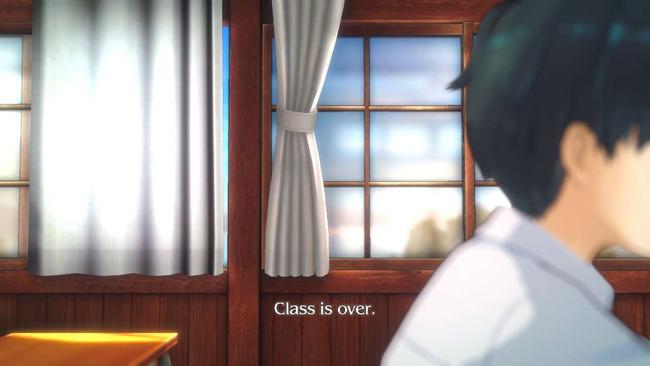
In a world overrun by mysterious creatures named Kegai, one town seems to be safe: Ashihara, Japan. The protagonist, Nini, is a young man who has moved here from space to spend the summer with his cousin-aged aunt. After a day of adjusting to his new life, things quickly go awry, and he learns about a few unique powers he has. One is the ability called Demon Sight which lets him see information about characters’ current moods. The other is that he finds himself trapped in a time loop during this August month of 1983 — one he can control. With the Kagai menace encroaching on his new home, he has to master his powers to navigate the loop.
Ashihara should be the game’s biggest pull, as it offers players from across the world a chance to live out a beautiful Japanese country-side summer. My initial impressions of the town were positive, thanks to Loop8’s charming blend of pre-rendered and 3D backgrounds that manage to feel in sync. The game is a treat to the eyes, and it’s clear that a lot of attention must have gone into the visuals. While I’m sure this will be contentious, I’m even quite fond of the deliberate choice to animate the characters with fewer frames than you might typically see in a game. Loop8 is clearly trying to emulate the presentation of an anime, so its characters animate at what I can only assume to be around 24 fps. This was jarring at first, but overall I grew fond of it.
Ashihara should have done something for me. But after all is said and done, it had done nothing for me. The reality of the town’s limited scope becomes painfully obvious as you begin to play out a loop. Ashihara is made up of six general areas, with some of those featuring a couple of connecting screens. You will see these areas so many times across your playthrough, but not in a way that will stick in your mind.

A day in your life will involve you going to these six areas and doing the same exact thing with little deviation. You will wake up at 9 AM, and be forced to sleep at 3 AM. Time is constantly advancing, with a real-life second lining up with an in-game minute. There are 12 characters to talk to in the entire town. They are the only people in the town. They each have different relationship stats with the protagonist and each other: Friendship, Affection, and Hate. You interact with everyone in about the same ways, with a series of event options. Some examples of these are: Getting to know someone, flattering them, telling like it is, etc. Depending on your relationship with a character, you can unlock more things to ask them. The problem though is that unless specified as a Special Event, most of these are generic and provide no new information on that character. You might trigger a random voiced event scene instead of getting to choose how to bond with characters, or maybe you’ll have the chance to hear how they respond to going on a date, but that’s essentially it. I never felt that I was growing closer to the cast, I felt like I was just grinding social stats.
The marketing advertised an AI system with the NPCs that would bend the story behind your relationships and decisions, that every loop would be different. Technically this is true in the most basic sense, but in the grand scheme of things all of my loops felt identical. You will always be doing the same set of things across every loop, even if you talk to different people. Every single thing you do will fade out to a stat increase screen with next to no added flavor text. This lack of characterization for most of the game kind of bleeds into the storytelling as well, which felt ultimately vapid and uncreative.
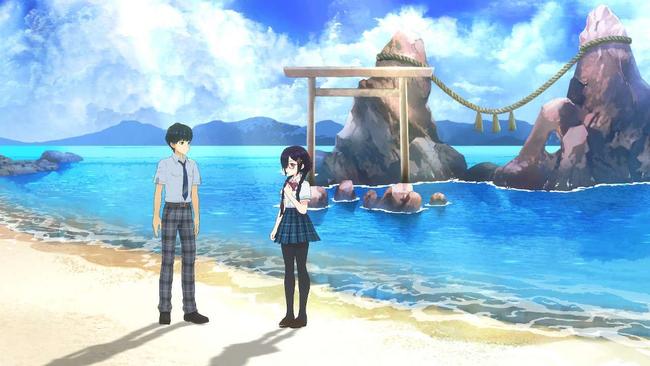
Balancing a game with such a hardcore time constraint is tricky, and concessions had to be made. For example, the run speed is slow and makes traversal drag. You can fast travel between the major six zones, but they’re calculated to use time based on how long it’d take to go there on foot. This map screen also incurs a loading session, and if you back out of this will reload NPC positions across the screen. I am accepting that they couldn’t allow players to move too fast for balance reasons, but this whole time system is very unbalanced in other areas. One of Nini’s stats is Social Status, and this went to a high level in my playthrough very early.
How NPCs respond to you seems to be dependent on a couple of aspects: Your Social Status, Your Current Relationship with them, Their Mood, and a random chance dice roll. Social Status appeared to reign supreme in getting characters. You can see a character’s mood at any time with Demon Sight, which allows you to see how the character is currently feeling before you talk to them. If a character is in a bad mood, you probably don’t want to even initiate a conversation. This is because, bafflingly, characters will be upset by you doing this and will increase their Hate stat. You need to commit to conversations, and the punishment isn’t severe, but it lends itself all too easily to the system feeling designed to split hairs and waste your time.
All this to say, with only a decent lead in Social Status you can absolutely break the pacing of building character relationships very early on. On my second-ever loop, I got a character maxed out on affection on my first day of talking with them. You can just mash through a character's arc in about 10 to 20 minutes, made easier by the fact that time does not pass when talking. One of the characters, Ichicka, started calling me Husband when not 30 minutes before we were only acquaintances.
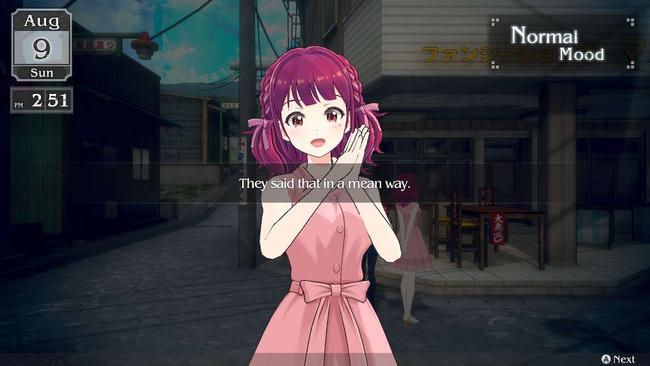
There is a romance mechanic in the game, based on the Affection stat. The generic events you have at your disposal to grow your bonds with your female allies always skew toward giving you more affection, so I ended each loop with several girlfriends without wanting to. Characters’ permanent stats end up being tied to maxing out their relationships, so you’ll have to be a player. You can, in fact, enter a relationship with your Cousin-Aunt. Please proceed to have whatever natural reaction this information elicits from you. I didn’t expect any better of Loop8 by this point, so seeing her force me into a relationship elicited no strong response from me.
I wouldn’t say the AI programming is any more advanced than something like Majora Mask’s scheduling out the lives of its NPCs. It honestly feels less advanced than that. Characters don’t do anything throughout the day, they just walk aimlessly across town from the time they get up to the time they sleep sometime after 9 PM. A lot of them will head to school bright and early, and you can keep track of their location on the town map, but they really just seem to go all over the place with no rhyme or reason. The pathfinding is also hilariously bad for just about every NPC. Ending class for the day caused me to load into a room of NPCs running into one another awkwardly. Alternatively, if you have friends join you around town the system in place to make them follow you seems completely bugged. They’d just awkwardly stand around, wait like 10 seconds to start moving to where you were but no longer are, and then stand around more.
I think when it comes down to it, the sheer amount of randomness is what bothers me about this game’s social systems. It doesn’t come across nearly as endearing as it thinks it is, it instead feels barely designed. I’m not sure what it says about me that I’m rather fond of games that are willing to spit in the player’s face. I’m the kind of guy who enjoys playing Drakengard 3 on original hardware; it’s got soul. I like working for my satisfying pay-offs even at the cost of fun, because it mirrors life in a way. I rarely play games for escapism, and I enjoy when game design reflects the awkwardness of navigating around interpersonal relationships. Not to say these are solely the kinds of games I play, but I do have a tolerance for this kind of obtuse game design. The problem is that there is nothing to latch onto here. None of these characters bring anything new to the table, or offer fun spins on played-out tropes. They exist as visually appealing cardboard cutouts that dispense bigger numbers.
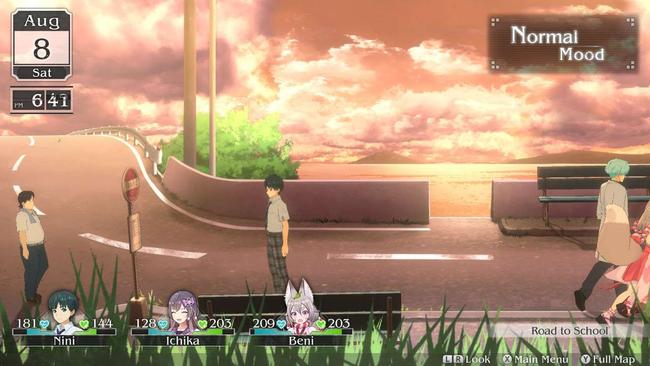
One of the weirder occurrences in my playthrough is that a certain character, when getting their Affection stat up high enough, will from then on have a random chance to kill you the next time you speak to them. It comes out of nowhere, and I could not figure out how to get it off even after the romance route ended for them. I would just always be at risk of getting a game over whenever I spoke to her in that loop. The game only autosaves at the beginning of the day, so that’s a decent chunk of progress loss if you aren’t prepared.
When you aren’t talking to people, you can examine a select few objects across town. These will either give you an option to train a stat (for example, pull-up bars at the school will increase your strength) or stumble across a Blessing. Blessings are where the game’s rogue-lite elements come into play. Whenever you find one of these, an annoying Squirrel creature named Musasa pops into existence and will repeat the same introduction before telling you if you got a Blessing. If you aren’t exploring town with a party, you’ll find permanent increases to a random one of Nini’s stats. If you have friends, you’ll get a random permanent increase in one of their stats or your bond with them. I’ll recommend you run solo to start, to get Nini’s stats up as high as you can as soon as possible. Having this kind of advantage will help future loops play out smoother.
The looping mechanic kills any amount of goodwill I might have had from either the social system and the way stats work, both of which I found inoffensive on my first loop. Restarting the loop plays out exactly as you would logically expect, it starts everything back to 0. You carry over your blessing buffs, and previously established relationships will be regained at a faster rate, but that’s it. You are provided the same cutscenes every time. The bosses must be re-challenged, albeit in a different order. Every piece of dialogue you’d find by talking to a character is repeated. That last one is the big kicker. There’s a skip function for in-engine cutscenes, but the majority of the game is presented with VN-style text boxes. There is a fast-forward function for these text boxes, but it’s barely any faster than mashing through them.
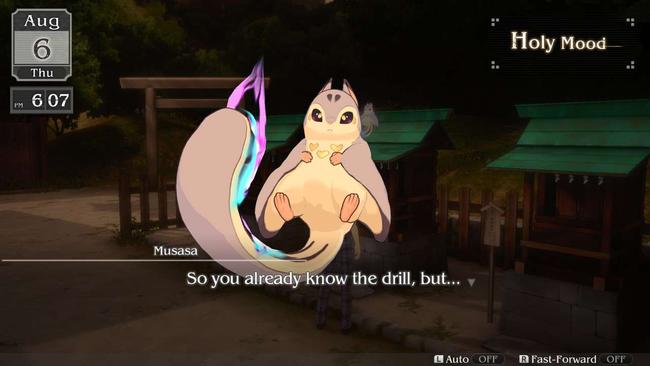
So you will sit there, on every single loop, repeating large amounts of old dialogue you've seen before. This is especially bad for some characters, who happen to have at least 20-30 intro lines of exposition before you can start increasing your bond with them. But, let’s say you maybe don’t want to engage in making friends all over again? You’ll find yourself out of options otherwise. There is nothing to do around the town to offer any kind of gameplay variety. Every single thing you can interact with exists to take you to a stat screen. No mini-games, no diversions. Just stats.
I wish there was much to say about the turn-based battles, but there really isn’t much to talk about. They’re average at best, and dull at worst. You can only control Nini, with your two other party members controlling themselves. You cannot give them commands, only see what commands they’ll do when their turn comes. Most of the battles in the game will be against the boss monsters, since Loop8’s stat growth happens purely through blessings and training in the real world. There are fodder monsters to fight in the Mirror World, a dark reflection of Ashihara, but they’ll only occasionally drop blessings so they might as well be ignored.
Boss Kegai, since they are based on the residents, will change depending on your relationship with them. Battles are where the most play of the Hate stat will come into play, because with every attack dealt you give it one of those three mentioned relationship stats. Using Hate against a boss will do slightly more damage, but it will in return make it more powerful. So, I decided early on to not bother with those attacks and play it safe, because the game’s difficulty curve is rather extreme when you’re starting out. Your party members don’t take after your lead, and can randomly decide to send Hate attacks the boss's way, which will make them stronger. Or, when a boss is about to die and instead of going all in they’ll just apply single-turn buffs to each other. Love that. Add to this the fact that if their bad actions get them killed, they’re dead for the rest of the loop. Your losses in Loop8 don’t feel fair, they feel like you’re getting screwed over by the game’s bad systems.
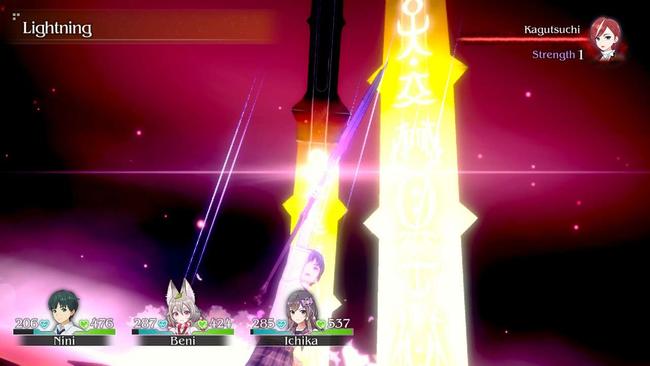
When it comes to defeating a boss, if your relationship stat with them isn’t to a certain level you will be forced to kill them. This will remove them from the loop, so you’ll have to restart that loop and mash through all of their text boxes to get your relationship with them up as soon as you can the next time if you’re trying to keep everyone alive.
Battles are made worse by the fact that there aren’t any interesting locations you’ll be fighting them in. There are no dungeons, just the twisted version of the main town with all fast travel turned off. If you weren’t already sick of the lack of variety of places to explore the game, you will be when you have to run through all six zones painted purple. These aren’t the kind of issues that hit you right away, but will fester rather fast by nature of having to repeat the same content in each loop.
To offer praise where it is due, I found the voice acting (available in both English and Japanese) to be of pretty good quality. The localization reads well and I didn’t notice any strange sentences or grammar. I think the presentation side of the game holds up very well, and these aspects are no exception.
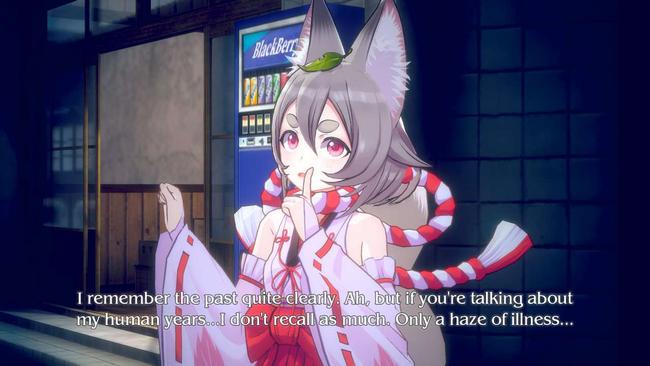
One thing that is worth noting is that up until the day before this review was set to go live, there were a series of patches that did alleviate some of my biggest gripes with the game flow. Not the game design itself, I don’t think this will fix an ultimately flawed game at its core, but it did improve some aspects. Musasa’s interjections with the full, drawn-out animation can now be skipped, with them now only saying the relevant part before leaving. I cannot make it clear enough how maddening it was to see Musasa’s almost identical dialogue repeated ad nauseam. It made so much of my experience that much worse, so I’m happy there is now an option to fix this. The same is true for battle animations, which were also rather long and tedious to sit through thanks to the extremely awkward camera animations. I’m frustrated that these two quality-of-life fixes weren’t in the version of the game I played for most of the review window, but I’m at least happy they’ll be ready for players by launch.
Loop8’s problem is that it can't back up the fantasy it presents, so it lays the numbers bare. Those numbers aren’t very interesting, however. Most of the game is talking to NPCs and increasing stats, and bosses come and go with very little significance or weight to the plot. Playing this game perfectly depicts what it must be like to be stuck in a monotonous time loop, unable to change much of anything and surrounded by people who only ever say the same things.
Loop8 is a game full of great ideas that never come together. The most fascinating hooks in the premise fall flat upon execution, and I can imagine how much better of a game this would have been if it didn’t even try to be a time loop game at all. I can see a hypothetical RPG in this setting that hones in hard on the vibes, but that is not what we got here. There are few things I like less than a boring game with no substance and a lack of respect for the player's time. Loop8 is the epitome of this.